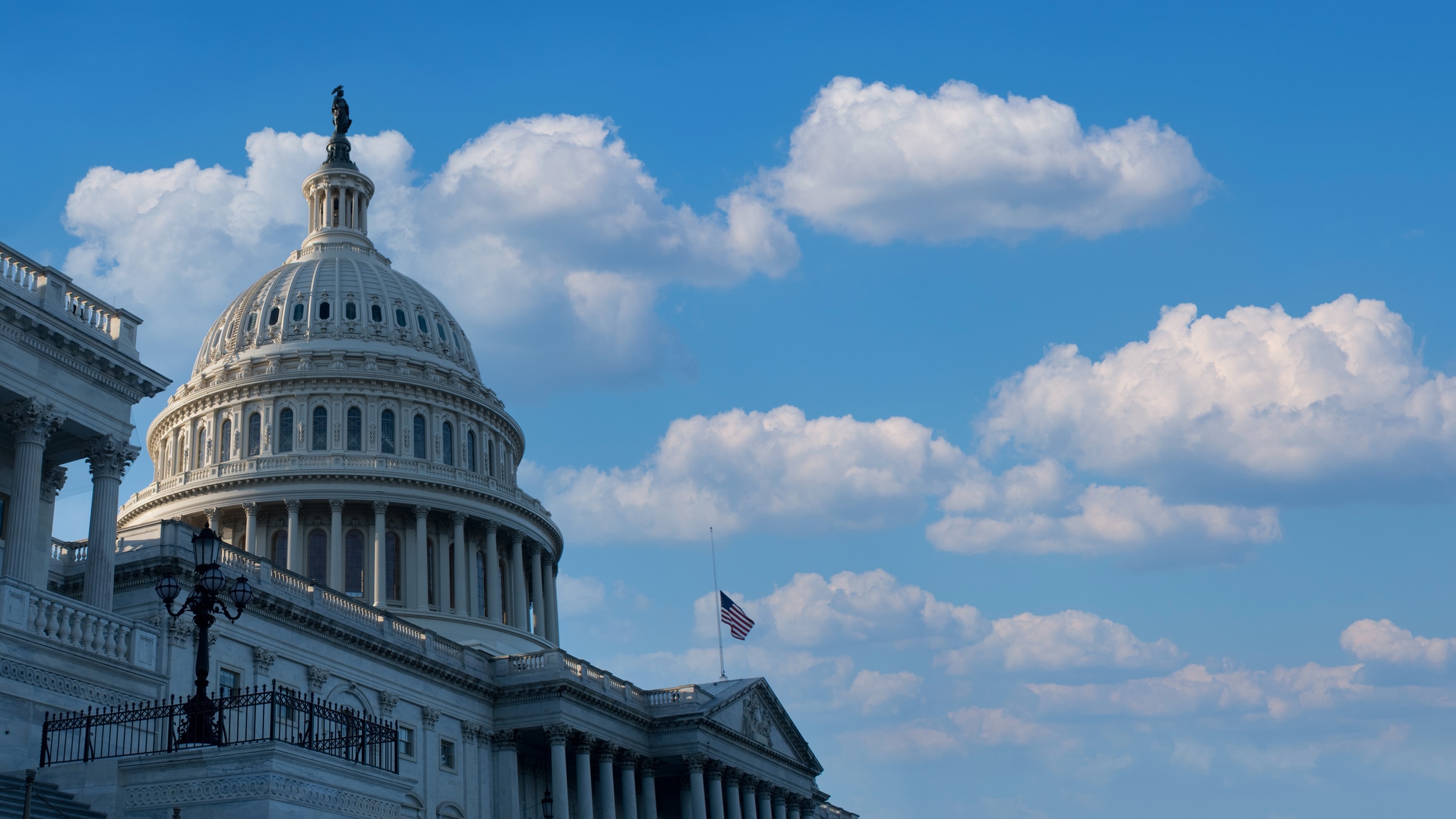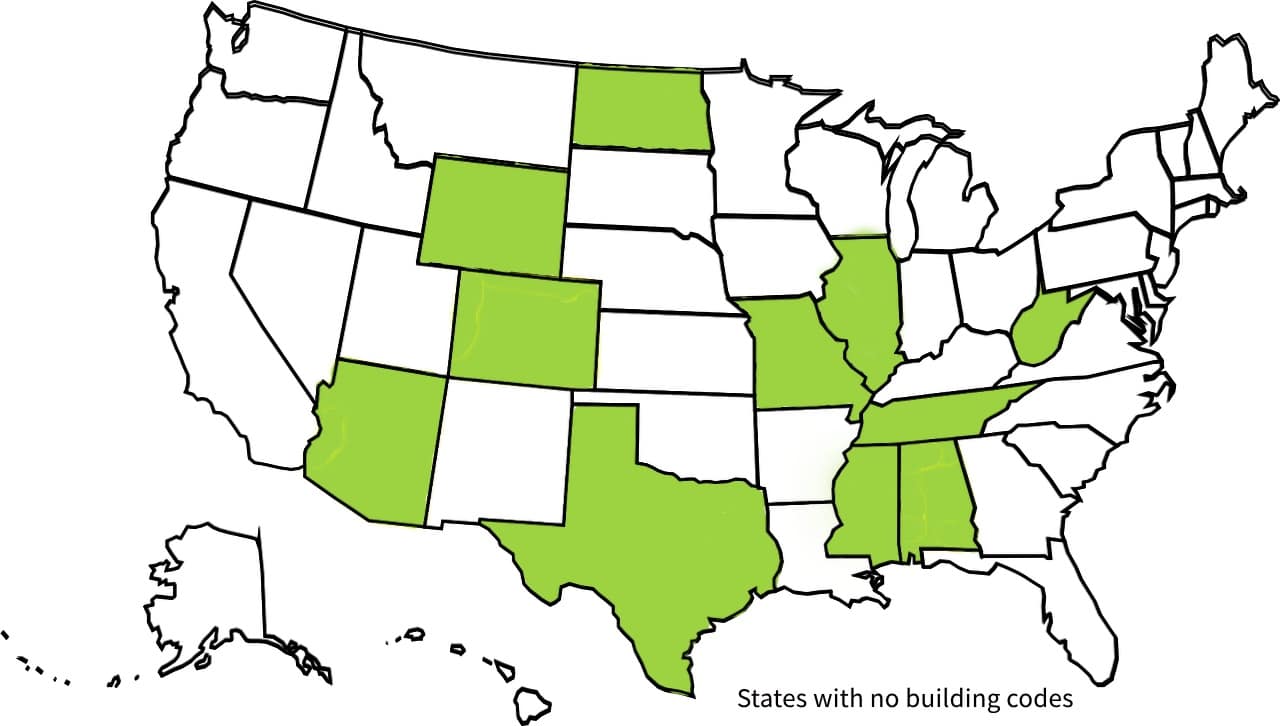Living off-grid involves numerous legal and regulatory considerations. You’ll need to ensure compliance with various off-grid laws and regulations while seeking a self-sufficient lifestyle. Here are some key legal and regulatory considerations to keep in mind when living off-grid:
Zoning and Land Use Regulations:
Check local zoning ordinances to understand land use regulations in your area. Some locations have specific requirements for residential, agricultural, or off-grid properties. Ensure your off-grid setup aligns with these regulations.
Building Codes:
Be aware of local building codes and permitting requirements. Some areas may require permits for constructing or modifying buildings, even in remote locations.
U.S. States without statewide residential building codes:
- Alabama
- Arizona
- Colorado
- Illinois
- Mississippi
- Missouri
- North Dakota
- Tennessee
- Texas
- West Virginia
- Wyoming
Septic and Sanitation Regulations:
Compliance with sanitation and wastewater regulations is essential. Install septic systems or composting toilets that meet local health department standards.
Water Rights:
In some areas, water rights can be a complex issue. Make sure you have legal access to water sources and understand local laws regarding water usage and collection.
Energy and Electrical Regulations:
If you’re generating your own electricity from renewable sources, understand local and state regulations governing the installation and connection of solar panels, wind turbines, or other energy systems.
Fire Safety Regulations:
Depending on your location, you may need to adhere to fire safety regulations, especially if you’re living in a fire-prone area. This could include requirements for defensible space and fire-resistant construction.
Health and Safety Codes:
Ensure your property complies with health and safety codes. This may involve fire exits, emergency access, and safety standards for buildings.
Land Ownership and Easements:
If you’re on land that’s part of an easement or has shared access roads, understand the rights and responsibilities associated with land ownership and easements.
Environmental Regulations:
Comply with environmental regulations, such as wetlands protections and restrictions on tree cutting. Some actions can have environmental consequences that may be regulated.
Hunting and Fishing Regulations:
If you plan to hunt or fish for food, understand local wildlife regulations and obtain any necessary permits or licenses.
Taxation:
Understand the tax implications of living off-grid. Property taxes, income taxes, and other taxes may apply. Consider seeking tax advice from professionals knowledgeable about off-grid living.
Homeowner’s Associations (HOAs):
If you’re part of an HOA, be aware of the association’s rules and bylaws. Some HOAs may have restrictions on off-grid living practices.
Land Titles and Deeds:
Verify the ownership and title of the land you intend to live on. Ensure that any transactions are legally documented.
Easements and Right of Way:
Check for easements or rights of way that might affect your property. These could allow others to pass through your land or use certain resources.
Legal Agreements with Neighbors:
Consider establishing legal agreements with neighbors regarding shared resources, property boundaries, or other arrangements.
Insurance:
Evaluate the insurance needs of your off-grid lifestyle, including homeowner’s insurance, liability coverage, and coverage for your off-grid systems.
Permitting for Off-Grid Systems:
For systems like solar panels, rainwater harvesting, and alternative waste management, check if permits or approvals are required.
Off-Grid System Interconnection:
Understand regulations related to grid interconnection, as some areas require safety measures for off-grid systems that can potentially backfeed power into the grid.
Navigating the legal and regulatory aspects of off-grid living can be complex, and the requirements can vary significantly depending on your location. Consult with local authorities, experts, and legal professionals familiar with off-grid living and the specific laws in your region to ensure you remain in compliance and address any potential legal challenges that may arise. Living off-grid laws and regulations


Leave a Reply
You must be logged in to post a comment.